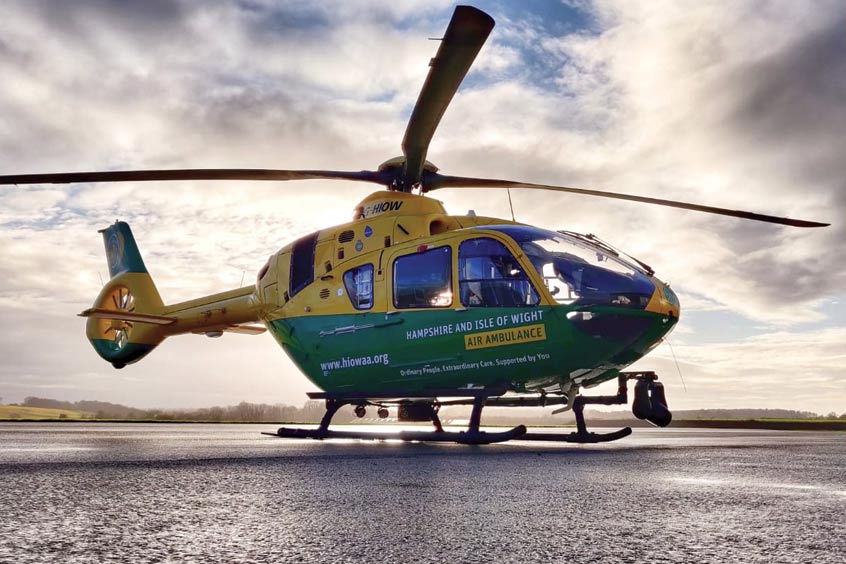Why visit ACE ’25?

UK aeromedical charity Hampshire and Isle of Wight Air Ambulance (HIOWAA) responded to 1,577 call-outs by air and road in 2020, its second highest yearly total on record, as it remained fully operational throughout the pandemic providing vital support to the NHS. The charity operates one H135 helicopter.
The 2020 yearly figures represent a drop of 685 individual call-outs when compared to 2019 (2,262). However, despite there being fewer cars on the roads as a result of much of the region being confined to their homes, the mission numbers accounted for in 2020 still eclipsed those witnessed in 2018 (1,429).
The charity has revealed that of the 1,577 incidents it responded to in 2020, the largest number were to cardiac arrests, accounting for 27 per cent (423) of all call-outs. Road traffic collisions accounted for a total of 21 per cent (324).
Deputy CEO Sherie Williams Ellen says: “These figures demonstrate the fundamental need for our life-saving service. To surpass the number of call-outs we received in 2018, while much of the nation spent long periods of time indoors, is simply staggering. Throughout the pandemic our doctors, specialist paramedics and pilots have continued to provide the most seriously ill and injured people in our region with the most advanced critical care available.
“I am beyond proud of the way in which our charity has responded to the health crisis and the subsequent demands placed upon the team. Every step of the way, however, we have been backed up by our incredibly generous donors. Without them, none of what we do would be possible.”
In addition to providing life-saving treatment at the roadside, a number of the HIOWAA specialist paramedics worked long hours in the University Hospital Southampton emergency department, offering much-needed support to their frontline medical colleagues.
The charity's critical care teams are also on standby to be called up to assist the National Critical Care Transfer Cell in helping to relieve pressure in intensive care units from more remote locations of the country. This will include, but is not limited to, carrying COVID-19 positive patients from the Isle of Wight to hospitals on the mainland.